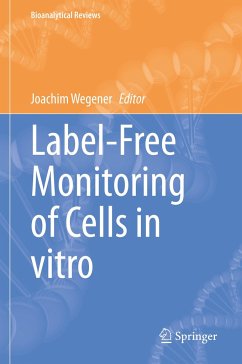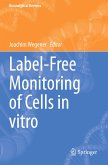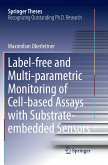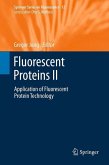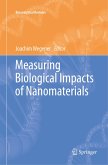This book is dedicated to label-free, non-invasive monitoring of cell-based assays and it comprises the most widely applied techniques. Each approach is described and critically evaluated by an expert in the field such that researchers get an overview on what is possible and where the limitations are. The book provides the theoretical basis for each technique as well as the most successful and exciting applications.
Label-free bioanalytical techniques have been known for a long time as valuable tools to monitor adsorption processes at the solid-liquid interface in general - and biomolecular interaction analysis (BIA) in particular. The underlying concepts have been progressively transferred to the analysis of cell-based assays. The strength of these approaches is implicitly given with the name 'label-free': the readout is independent of any label, reagent or additive that contaminates the system under study and potentially affects its properties. Thus, label-free techniques provide an unbiased analytical perspective in the sense that the sample is not manipulated by additives but pure. They are commonly based on physical principles and read changes in integral physical properties of the sample like refractive index, conductivity, capacitance or elastic modulus to mention just a few. Even though it is not implied in the name, label-free approaches usually monitor the cells under study non-invasively meaning that the amplitude of the signal (e.g. electric field strength, mechanical elongation) that is used for the measurement is too low to interfere or affect. In contrast to label-based analytical techniques that are commonly restricted to a single reading at a predefined time point, label-free approaches allow for a continuous observation so that the dynamics of the biological system or reaction become accessible.
Label-free bioanalytical techniques have been known for a long time as valuable tools to monitor adsorption processes at the solid-liquid interface in general - and biomolecular interaction analysis (BIA) in particular. The underlying concepts have been progressively transferred to the analysis of cell-based assays. The strength of these approaches is implicitly given with the name 'label-free': the readout is independent of any label, reagent or additive that contaminates the system under study and potentially affects its properties. Thus, label-free techniques provide an unbiased analytical perspective in the sense that the sample is not manipulated by additives but pure. They are commonly based on physical principles and read changes in integral physical properties of the sample like refractive index, conductivity, capacitance or elastic modulus to mention just a few. Even though it is not implied in the name, label-free approaches usually monitor the cells under study non-invasively meaning that the amplitude of the signal (e.g. electric field strength, mechanical elongation) that is used for the measurement is too low to interfere or affect. In contrast to label-based analytical techniques that are commonly restricted to a single reading at a predefined time point, label-free approaches allow for a continuous observation so that the dynamics of the biological system or reaction become accessible.

